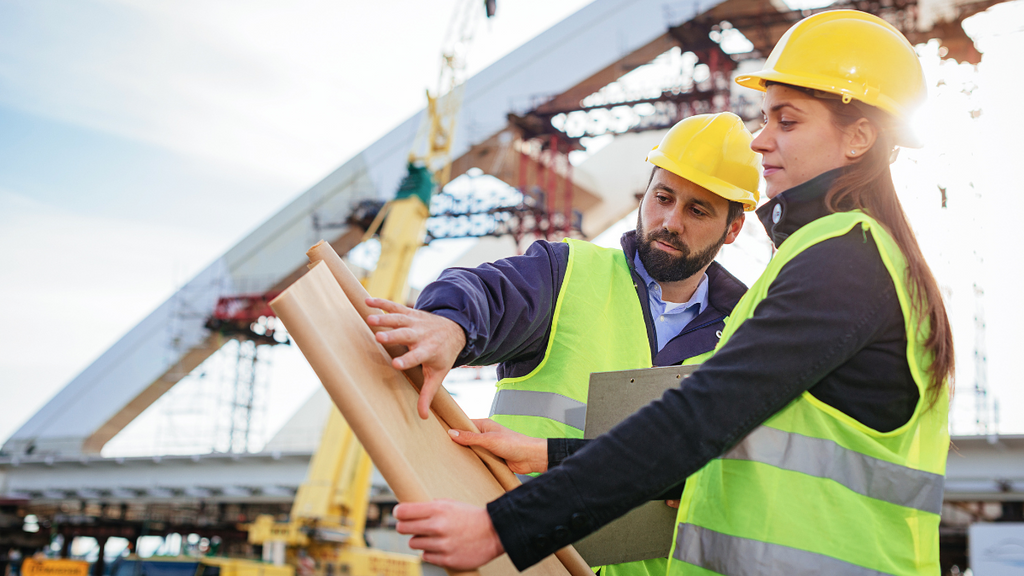Unknown Facts About Geotheta
Unknown Facts About Geotheta
Blog Article
Rumored Buzz on Geotheta
Table of ContentsThe Definitive Guide to GeothetaSome Known Factual Statements About Geotheta The smart Trick of Geotheta That Nobody is DiscussingA Biased View of GeothetaAll About Geotheta

They conduct site investigations, accumulate samples, execute laboratory examinations, and examine information to assess the viability of the ground for construction tasks - Consulting Engineer. Based on their findings, geotechnical designers supply referrals for structure design, slope stability, preserving structures, and reduction of geotechnical risks. They work together with various other specialists, such as architects, structural engineers, and building groups, to make sure that geotechnical factors to consider are incorporated right into the total task style and application
By assessing the habits and residential or commercial properties of soil and rock, they can determine prospective geotechnical risks such as landslides, soil negotiation, or slope instability. Their competence aids stop failings or accidents that might endanger lives and residential or commercial property. Below are some thorough responsibilities and responsibilities of a geotechnical engineer: Website Examination: Geotechnical designers conduct site investigations to collect data on subsurface conditions.
They analyze the information to understand the homes and habits of the dirt and rock, including their toughness, leaks in the structure, compaction characteristics, and groundwater conditions. Geotechnical Analysis and Design: Geotechnical engineers evaluate the data gathered throughout website examinations to examine the security and suitability of the site for building jobs. They execute geotechnical estimations and modeling to examine factors such as bearing capacity, negotiation, incline stability, side planet pressures, and groundwater circulation.
The Facts About Geotheta Uncovered
Foundation Design: Geotechnical engineers play a crucial function in developing structures that can securely support the designated structure. They evaluate the soil conditions and load needs to figure out the proper structure type, such as superficial foundations (e.g., grounds), deep structures (e.g (https://www.storeboard.com/geotheta)., stacks), or specialized strategies like dirt improvement. They think about variables such as settlement limits, bearing capacity, and soil-structure communication to create optimal foundation designs
They examine building plans, monitor website tasks, and carry out field evaluations to confirm that the design recommendations are adhered to. If unpredicted geotechnical problems develop, they assess the situation and offer recommendations for removal or adjustments to the design. Threat Evaluation and Reduction: Geotechnical designers examine geotechnical threats and dangers connected with the project site, such as landslides, liquefaction, or dirt disintegration.

Cooperation and Communication: Geotechnical designers work very closely with other professionals associated with a job, such as designers, architectural designers, and building and construction teams. Reliable communication and collaboration are necessary to incorporate geotechnical considerations right into the general project layout and building and construction procedure. Geotechnical engineers give technical knowledge, answer queries, and ensure that geotechnical requirements are fulfilled.
The Geotheta PDFs
Below are some sorts of geotechnical designers: Structure Designer: Structure designers specialize in designing and analyzing structures for frameworks. They analyze the soil conditions, lots requirements, and site attributes to figure out one of the most ideal foundation type and layout, such as shallow structures, deep structures, or specialized strategies like stack structures.
They review the factors affecting incline stability, such as dirt properties, groundwater problems, and slope geometry, and develop techniques to stop incline failings and alleviate risks. Earthquake Designer: Earthquake designers focus on assessing and creating structures to endure seismic pressures. They analyze the seismic danger of a site, evaluate soil liquefaction potential, and establish seismic design criteria to ensure the safety and security and resilience of structures during quakes.
They do area testing, accumulate examples, and analyze the gathered data to identify the soil homes, geologic formations, and groundwater problems at a website. Geotechnical Instrumentation Designer: Geotechnical instrumentation engineers concentrate on surveillance and determining the habits of soil, rock, and structures. They mount and preserve instrumentation systems that check elements such as soil negotiation, groundwater degrees, incline motions, and structural variations to analyze efficiency and give very early cautions of prospective problems.
Geotheta for Dummies
They perform examinations such as triaxial tests, consolidation examinations, direct shear tests, and permeability tests to gather data for geotechnical analysis and style. Geosynthetics Designer: Geosynthetics designers concentrate on the layout and application of geosynthetic materials, such as geotextiles, geogrids, and geomembranes. They use these products to enhance soil security, enhance inclines, offer drain options, and control disintegration.
They have a tendency to be investigative people, which means they're intellectual, introspective, and curious. They wonder, methodical, sensible, analytical, and logical. Several of them are additionally social, implying they're kind, generous, cooperative, patient, caring, handy, understanding, tactful, and friendly. Does this sound like you? Take our free job test to discover if geotechnical designer is one of your leading occupation suits.
In the workplace setting, geotechnical engineers make use of specialized software application tools to carry out estimations, produce designs, and analyze information. They prepare reports, testimonial job requirements, communicate with customers and employee, and coordinate project tasks. The office setup supplies a conducive environment for study, evaluation, and collaboration with other specialists involved in the project.
What Does Geotheta Mean?
They often check useful link out job sites to conduct website investigations, examine geotechnical problems, and gather information for evaluation. These sees include traveling to various areas, in some cases in remote or tough surfaces. Geotechnical designers might carry out dirt tasting, conduct examinations, and monitor construction tasks to ensure that the geotechnical aspects of the task are being carried out properly.
Geotechnical engineers also function in specialized geotechnical labs. In these centers, they carry out experiments, execute tests on soil and rock samples, and evaluate the design homes of the materials. Geotechnical research laboratory designers work thoroughly in these atmospheres, taking care of screening tools, operating instruments, and videotaping data. They collaborate with various other research laboratory team to guarantee precise and trusted testing outcomes.
Report this page